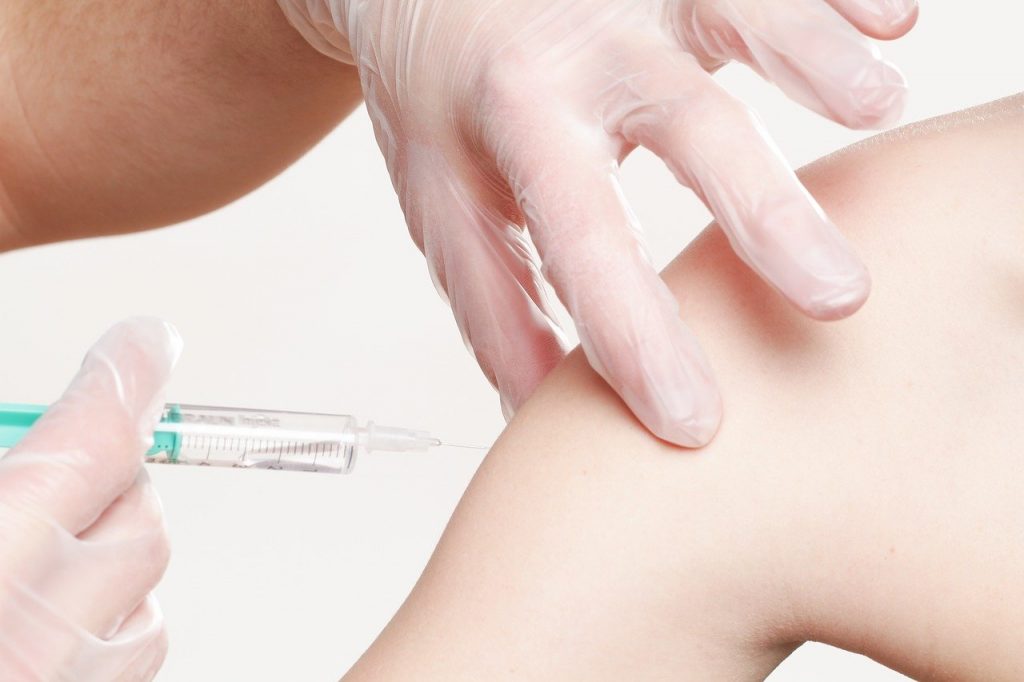Will an antibody test detect antibodies produced following a Covid-19 vaccination?
With Covid-19 vaccines now being rolled out in the UK, you may have questions such as: How does the vaccine work? What does the vaccine mean for immunity? Can an antibody test detect antibodies produced by the vaccine? Here, we explain everything you need to know, including why you might consider getting an antibody test.
Nearly a year on from when the Covid-19 pandemic began, the word ’vaccine’ provides an instant feeling of hope for the future. Although the vaccine does not have the power to eliminate the pandemic once and for all, building up resistance to the virus is critical in our fight to save lives and re-gain a sense of normality.
While no vaccine is 100% effective, it plays an important role in helping to protect us against Covid-19, particularly those who are most vulnerable. In the UK, initial vaccinations are prioritising those living and working in care homes, elderly people over the age of 80, as well as health and social care workers.
With the hope of returning to ‘normality’ on the horizon, you may be wondering whether an antibody test could benefit you. Firstly, let’s discuss how a vaccine works and what it means for immunity.
How does a vaccine work?
A vaccine contains a weakened or inactive version of a pathogen such as a virus or bacteria. This triggers an immune response, teaching the immune system how to recognise and fight the infection. In addition to producing antibodies, our immune system also creates memory cells which will produce specific antibodies if exposed to the same pathogen again in the future. This provides protection against future re-infection as the antibody response becomes much faster. Therefore, vaccines help our bodies to develop immunity, without contracting the disease and becoming ill.

Do Covid-19 antibodies provide immunity?
Since Covid-19 is a new virus, scientists around the world are continually researching what antibodies mean for immunity and how long any immunity may last. Although researchers are yet to draw any final conclusions, studies suggest that having Covid-19 antibodies may provide protection against re-infection for up to six months or longer.
An antibody test is useful in helping us to understand any immunity we may have against Covid-19.
Can an antibody test detect antibodies produced following vaccination?
Since there are now many different antibody tests available, it can be difficult to decide which test to choose. If you are considering testing post-vaccination, you should know that Better2Know provides the most up-to-date antibody test which can not only detect antibodies produced by the vaccine but will also tell you the strength of your antibody response.
This test measures both IgG and IgM antibodies which are produced in response to natural infection as well as to the Covid-19 vaccines. The test works by looking for the Spike protein, which is the target of many Covid-19 vaccinations.
Another advantage of this test is that it provides a quantitative result. This means that, instead of receiving simply a ‘positive’ or ‘negative’ result, your results will tell you the level of antibodies in your blood. This is particularly useful as repeated tests can provide a picture of your changing antibody levels over time.
This advanced antibody test is available as a home sample collection kit, a Nurse Kit, or by appointment at one of our nationwide clinics. If you are looking for an antibody test following your Covid-19 vaccine, get in touch with Better2Know’s highly trained advisors by phone or live chat today, or visit our website to find out more.
Sources
[1] GOV.UK: Covid-19 vaccines: What you need to know
[2] World Health Organization: How do vaccines work?
[3] CDC: How Vaccines Work
[4] CDC: Covid-19 Vaccine Myths & Facts
[5] The Guardian: How does Covid immunity work and what does it mean for vaccines?
[6] The Guardian: Before you compare the Covid vaccines, here are five things to know
[7] Healthline: How long does immunity last after Covid-19? What we know
Categories
- Awards
- Bacterial Vaginosis
- Blood Tests
- Cervical Cancer
- Chlamydia
- Condoms
- Covid-19
- Gardnerella
- Genital Warts
- Gonorrhoea
- Health and Wellness
- Hepatitis A
- Hepatitis B
- Hepatitis C
- Herpes
- HIV
- HIV (AIDS)
- Home Testing
- HPV
- Instant Testing
- MSM
- Mycoplasma
- News
- Non-Specific Urethritis
- PAP Smear
- Pre-Pregnancy
- Sexual Health
- STD Symptoms
- STD Tests and Screens
- STI Transmission
- Stigma
- STIs
- Swab Tests
- Syphilis
- Trichomonas
- Ureaplasma
- WSW
- Zika
